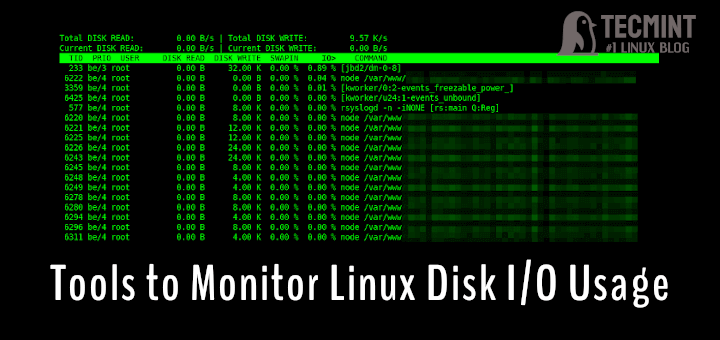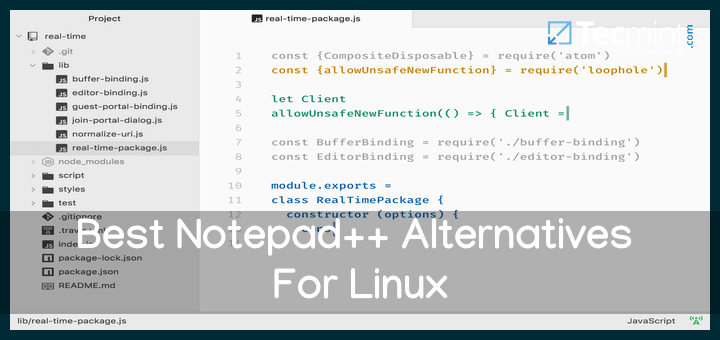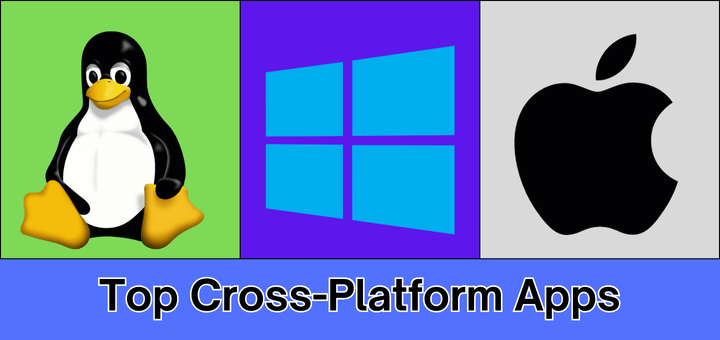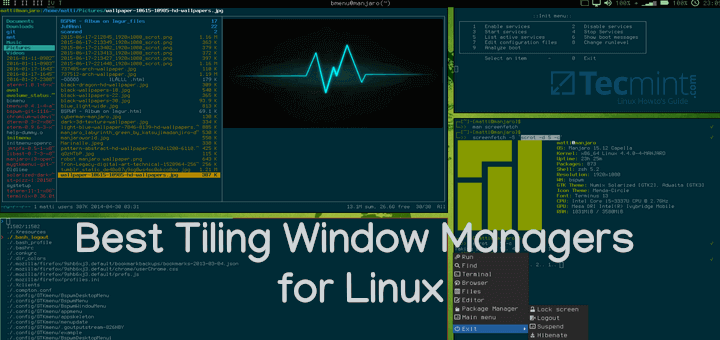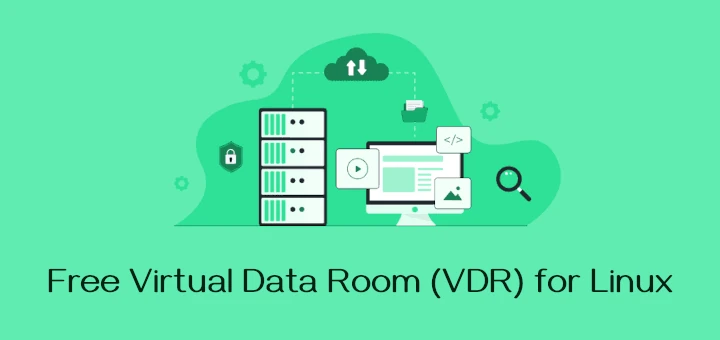Google Photos is a powerful and formidable solution for backing up, managing, organizing, and sharing photos. However, it’s not without its shortcomings. For example, it’s not the most privacy-centric photo management solution and you cannot self-host it on your private server.
In this guide, we discuss some of the open-source alternatives to Google Photos that you can leverage to host (and even self-host) photos and still enjoy some of the features provided by Google Photos.
1. Piwigo – Open Source Photo Management Software
Written in PHP, Piwigo is an open-source image management software that lets you easily organize and share photos online. It’s a web-based application designed for teams, individuals, and organizations. It provides two main offerings: Cloud and Self-Hosted options.
The cloud offering is the Piwigo Saas model which provides hosting space for your photos, upgrades, and customer support. It’s ideal for professionals, or teams who want to share their images online with colleagues, and clients.
The Saas model provides four distinct pricing plans for professionals, small teams, Enterprises, and VIPs. You get a 30-day free trial for all the models, after which you will start paying a subscription fee.
Check out the demo galleries.
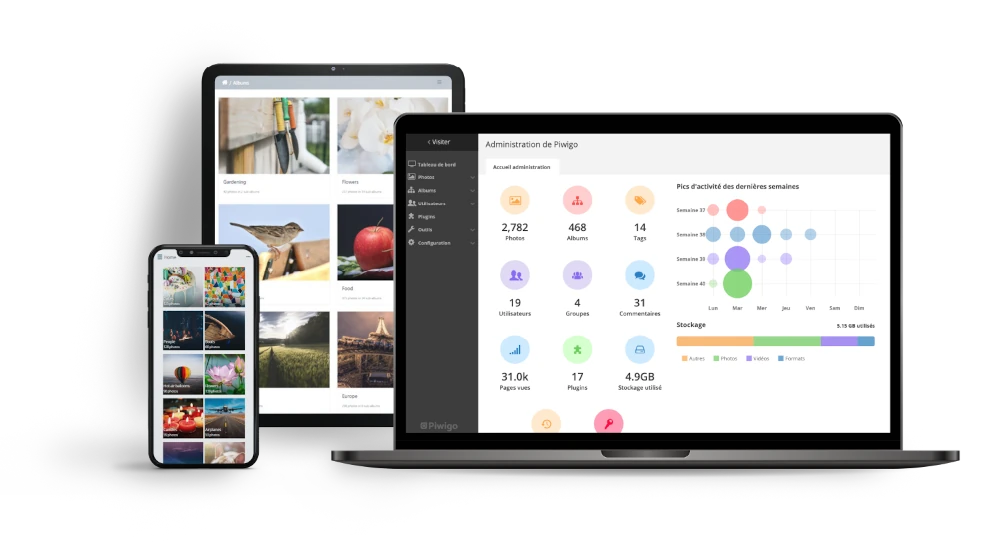
Aside from the Saas model, you can opt for the self-hosting option, which is free and lets you download and install Piwigo on your server or infrastructure using the LAMP tech stack. And since it’s a self-hosted option, you need the skills to manage your installation, updates, customization, and backups.
Key Features
Piwigo offers the following key features:
- Various ways of adding photos including via the web, FTP client, or desktop apps such as Shotwell and Lightroom.
- Organizing photos in an album.
- Full-screen slide show.
- Geocoding
- Batch manager to filter photos and apply certain actions to multiple photos including adding tags, changing the author, etc.
- Themes and plugins for changing appearance.
- A powerful web API for interacting with Piwigo from other applications such as Adobe Lightroom.
2. Immich – Photo and Video Management Solution
Immich is a self-hosted photo and video management solution that lets you easily upload, sync, search, and browse your photos and videos. It’s available under the GNU AGPL v3 license.
In addition to providing a web, it’s also available for Android and iOS devices.
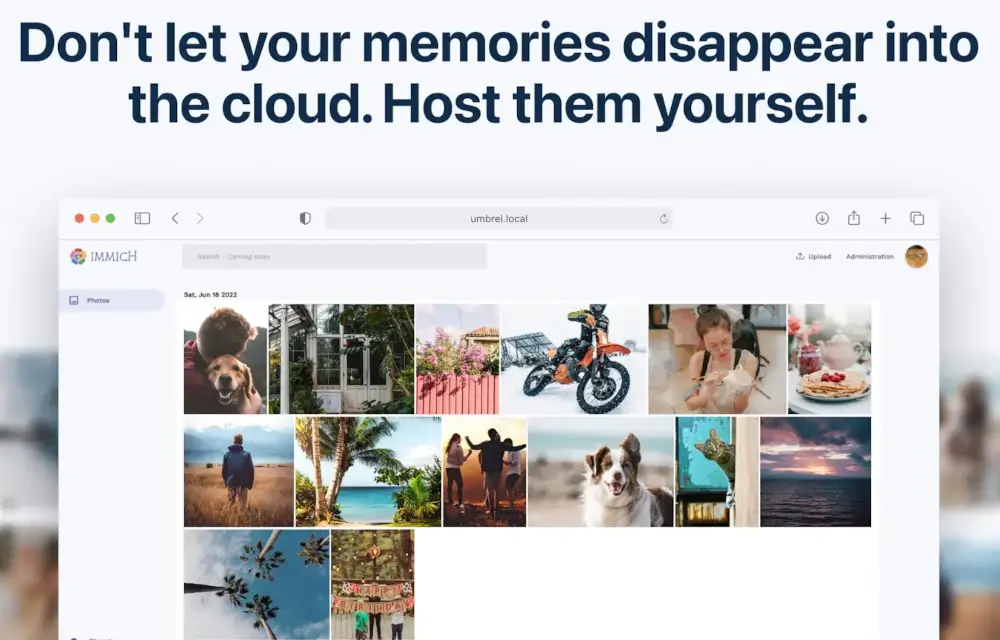
Key Features
Immich is a feature-rich photo management app that offers the following key features:
- It automatically backs up photos and videos, just like Google Photos.
- Organizing photos into an album.
- Photo sharing option.
- Support for bulk upload of files.
- Reverse geocoding of photos.
According to their main website, the project is still under active development and you may have a buggy experience. Users are advised not to rely on the application as the only way to store their photos and videos.
3. Lychee – Free Photo Management Tool
Lychee is another free and open-source photo management solution for uploading and organizing your photos. Like Google Photos, it provides all the necessary functionalities for managing your photos including uploading, searching, renaming, and deleting your photos from a browser.
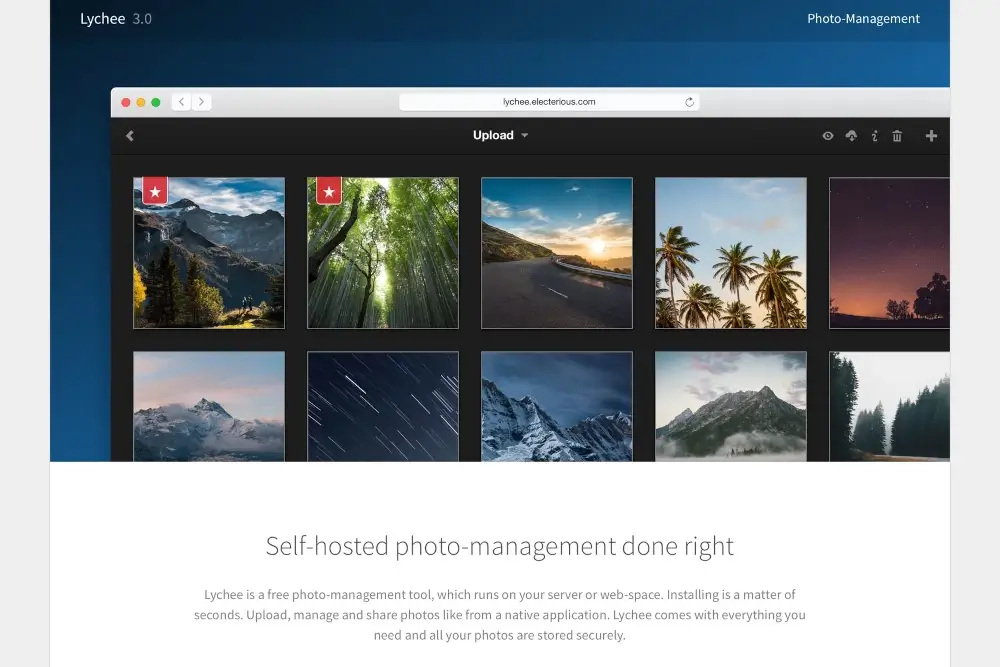
Key Features
It provides a simple and intuitive UI and an array of advanced features including:
- Support for Twitter Cards and Open Graph for shared images.
- Integration with ImageMagick for faster processing of uploads.
- Support for DropBox import feature.
- Photos email notification.
- Themes that are customizable with CSS.
4. PhotoPrism – AI-Powered Photos App
Photoprism is an AI-powered photo app for organizing and managing your photos. It leverages the latest AI technologies to tag and locate your photos automatically. You can host it on your home server and in the cloud.
It offers a user-friendly and privacy-friendly solution for accessing and organizing your pictures. It promises to keep your data private and does not share them with Amazon, Microsoft or Google.
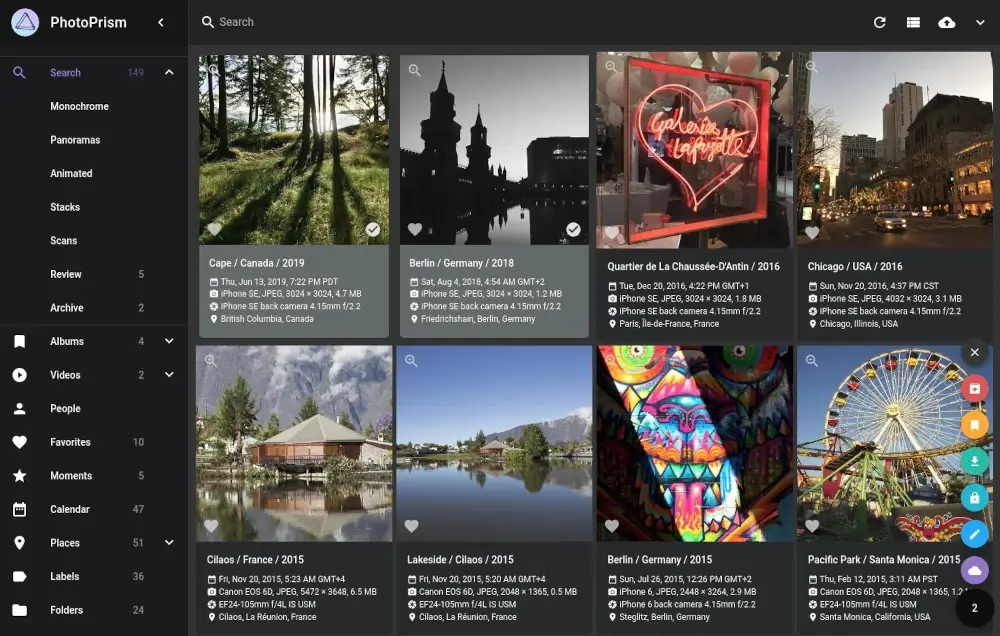
Key Features
Photoprism offers the following:
- Powerful search filters.
- Organizing photos & videos into albums.
- Playing Live Photos by hovering over them in albums and search results.
- Facial recognition.
- Support for browsing various photo and video file formats.
- Automatic classification of pictures based on their content and location.
- Play Live Photos by hovering over them in albums and search results.
5. Chevereto – Image and Video Hosting Software
Although not a perfect replacement for Google Photos, Chevereto is a platform for content creators, photographers, and other users who want a cool and elegant web gallery.
It provides a configurable file uploader that lets you preview images, drag and drop, and carry out parallel simultaneous uploads. Chevereto is a self-hosted platform providing a cloud offering with a commercial license for added features and functionalities.
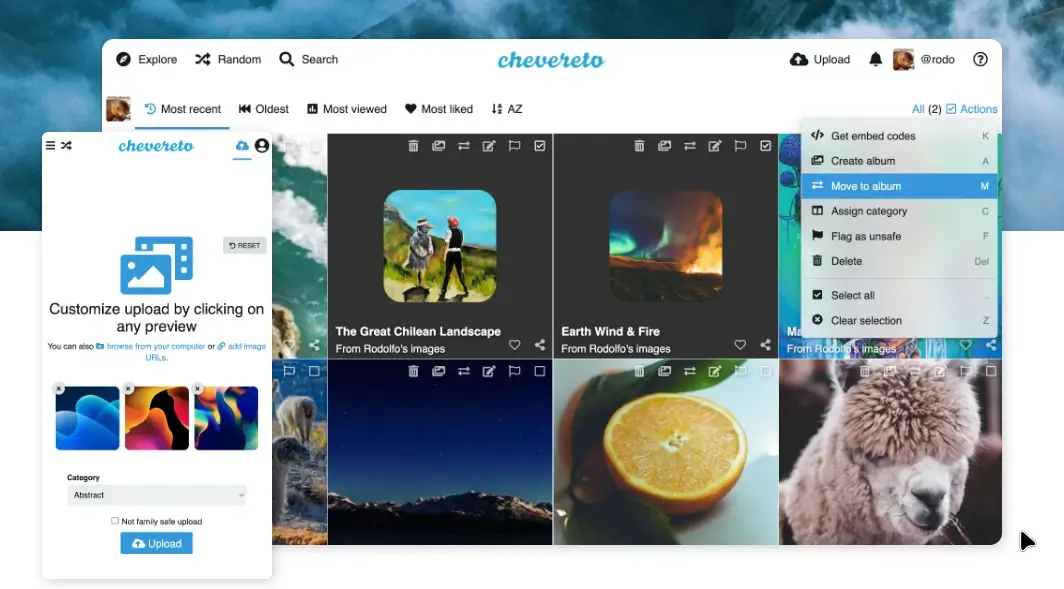
Key Features
Chevereto offers the following:
- You can distribute uploads across platforms including OpenStack, Amazon AWS S3, and Google Cloud Storage.
- Organizing photos into albums.
- Google Photos compatible.
- Call-to-action buttons.
- Upload plugins to provide seamless file uploading.
- Bulk-content importing.
6. LibrePhotos – Open Source Photo Management Service
If you are looking for a neat, user-friendly yet feature-rich photo management app for organizing and accessing your photos, look no further than LibrePhotos, which is a free and open-source photo management solution that lets you self-host your photos.
It’s an ideal platform for managing and sharing your photos and videos.
Here is a demo link that provides a preview of LibrePhotos.
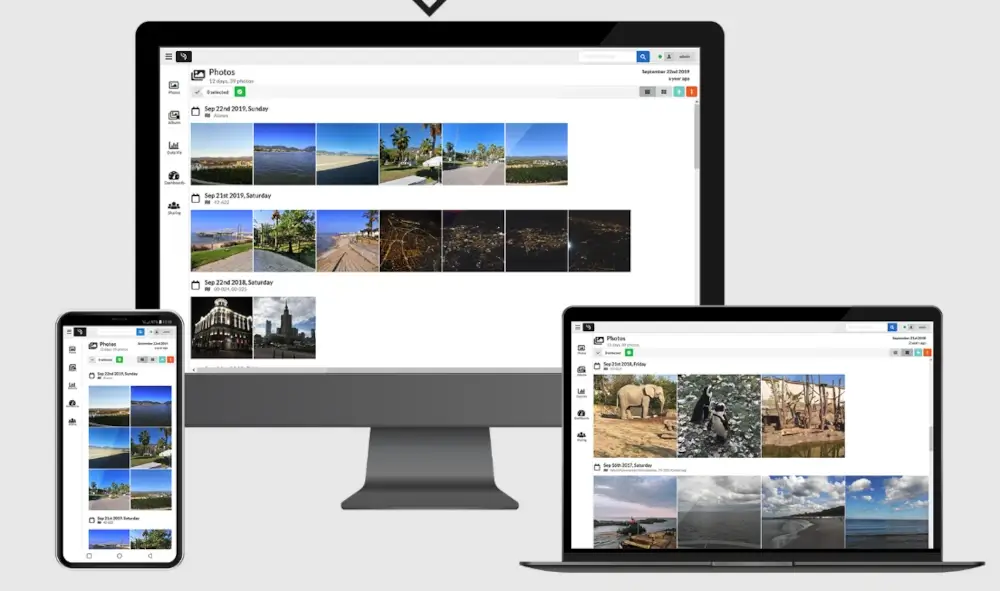
Key Features
LibrePhotos offers the following essential features:
- Support for all types of photos including JPEG, PNG, Webp, and raw photos.
- Reverse Geocoding.
- Face recognition.
- Ability to generate albums based on events like “Christmas in the Bahamas“.
- Multiuser support.
- Scans pictures on the file system.
- Powerful search feature.
7. Photoview – Photo Gallery Personal Server
Photoview is a neat and user-friendly photo gallery tailored for photographers or users enthusiastic about photography and images in general. It seeks to provide a seamless and convenient way to upload and organize photos into albums and directories.
It seeks to provide a seamless and convenient way to upload and organize photos into albums and directories.
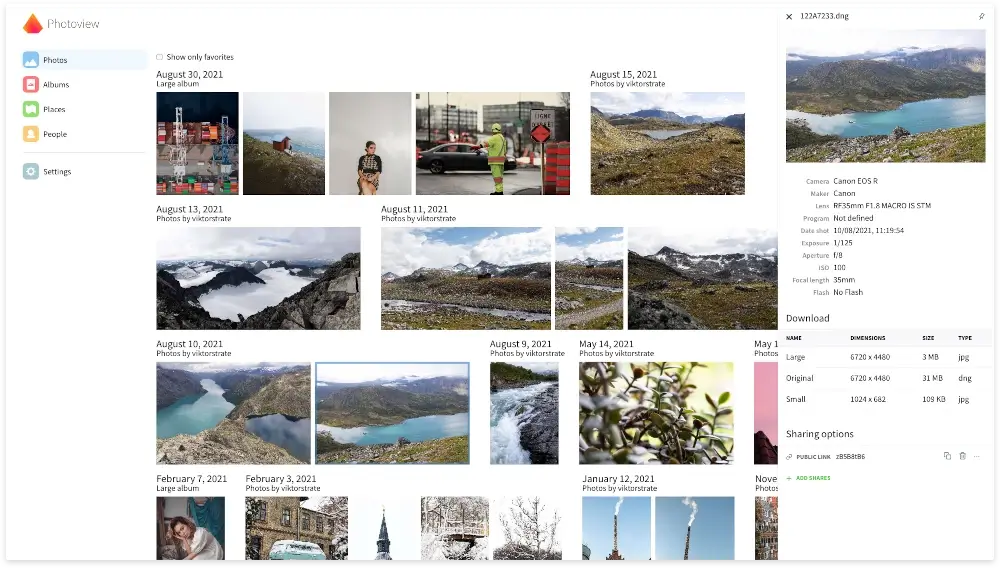
Key Features
Main features include:
- Facial recognition.
- Support for multiple video formats.
- Support for RAW image file formats and EXIF parsing.
- Sharing albums is made possible using a public link which can be password-protected.
- Highly secure – Media resources are secured using cookie-tokens and passwords properly hashed.
Photoview can be deployed using Docker and Pikapods.
8. NextCloud Photos App
Nextcloud is a popular cloud storage platform that enables users and organizations to host and share files seamlessly. It provides the same functionality as Google Drive and DropBox. If your primary interest is in managing photos, you can enable the NextCloud Photos app.
Nextcloud Photos app comes included in Nextcloud 18 and higher, so be sure you are on the right version. You can enable the app through the Apps Management section.
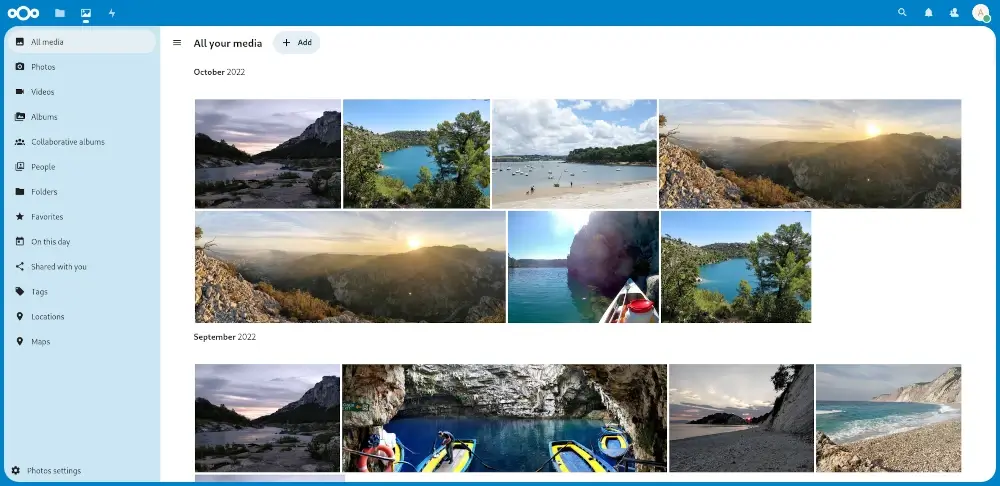
Key Features
At a glance, you get the following features.
- Simple and intuitive UI.
- AI-powered automatic face and object recognition with add-ons.
- Organizing photos in albums.
- Photo sharing.
- Basic photo editing.
- User-defined Tags.
- Available for Android and iOS.
9. Ente – Private Cloud Storage for Photos
Ente is a beautiful, private cloud for your memories, with apps for mobile, desktop, and web. It provides end-to-end encryption for extra security and comes ready out-of-the-box. Since it’s a cloud mode, it’s a paid service and you get to enjoy all the features available in Google Photos.
Ente has an app for every platform – Android, iOS, Windows, MacOS, and Linux. It also provides a Command Line Interface (CLI) for users who prefer running Ente on their servers.
Ente offers up to 5GB of storage for free. Premium pricing starts from 50GB.
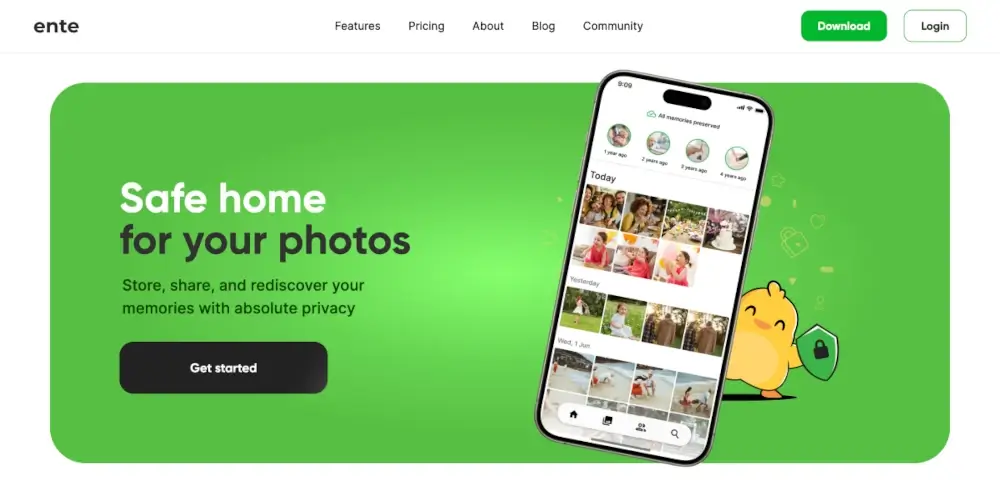
Key Features
At a glance, you get the following features.
- End-to-end encryption.
- Album sharing.
- Background photo uploads.
- Easily import photos using a desktop app.
- Family plans.
- Automatic backups.
- Link sharing to your albums with end-to-end encrypted links.
- You can attach descriptions and tags to your photos.
- Powerful search feature.
10. Memories – Photo Management Suite
In addition to Nextcloud Photos, we have the Memories App, which is a self-hosted photo management solution for Nextcloud. With Memories App, your images are stored on your Nextcloud instance and not on another party’s server.
Memories app is completely free and open-source, which allows you to encrypt personal data with a secret key for extra protection.
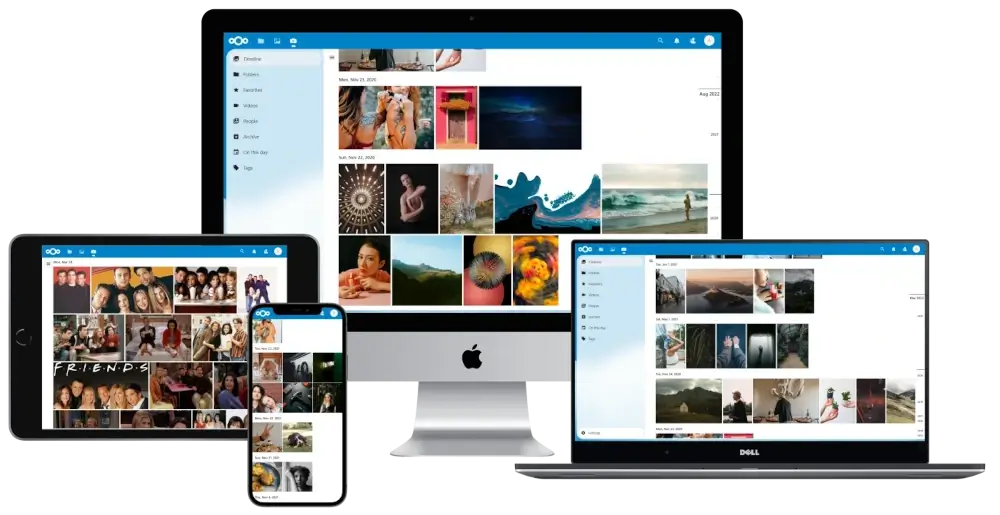
Key Features
At a glance, you get the following features.
- AI tagging of photos.
- View photos on a map with reverse Geocoding.
- Video transcoding.
- Facial recognition.
- Optimized for handling large photo galleries.
- Availability of Mobile apps: Both iOS and Android.
- Metadata editing – You can edit titles, description, date, time, etc.
11. Synology Photos
Last on the list is Synology Photos, which is a user-friendly all-in-one solution for organizing, sharing, and securing precious memories.
It lets you relive precious memories with your friends and loved ones from any device: whether from your laptop PC, tablet, or smartphone. You can share a single photo, video, group of photos or videos, or an entire album with a password-protected unique link.
Synology is completely free, hence no overhead costs are incurred in premium plans or tiers. With Synology, you can securely back up your photos to your private cloud or Synology NAS using the Synology mobile app which is available for iOS and Android devices. It also supports Apple and Android TVs.
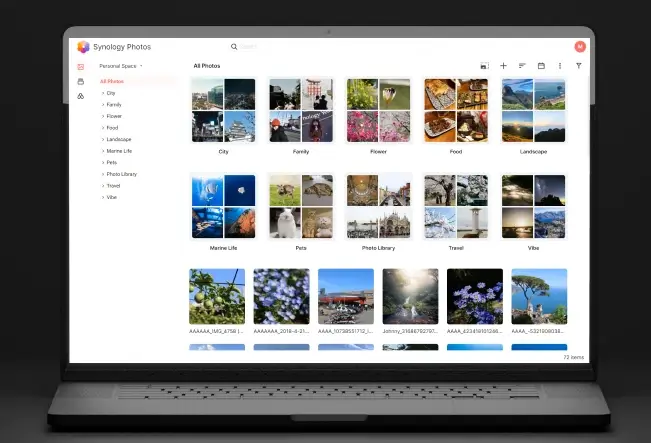
Key Features
At a glance, you get the following features.
- Automatic album creation.
- Smart filters.
- RAW file support.
- Easy sharing of photos and albums using a unique link.
- Folder and timeline view.
- Mobile apps for both Android and iOS.
Conclusion
In this guide, we have covered some of the most reliable photo managers you can use as an alternative to Google Photos. While they may not be entirely perfect, they provide a simple and easy way to upload, organize, and share photos and albums. Some provide powerful features such as AI facial recognition and end-to-end encryption for added security.
It is entirely at your discretion to decide which photo management solution works for you.

